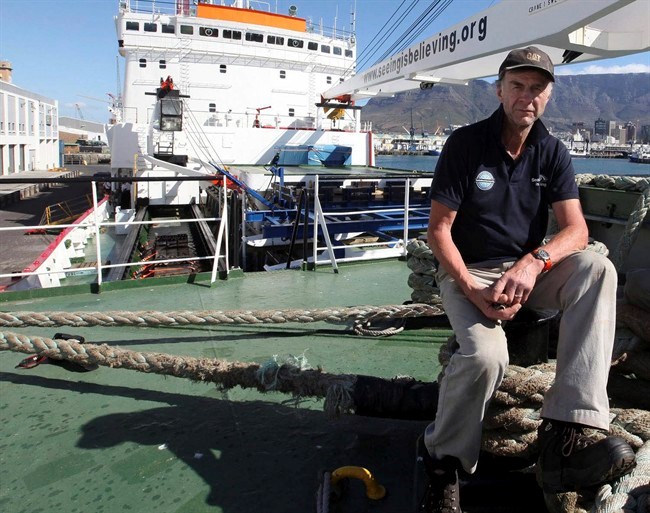JOHANNESBURG - British explorer Sir Ranulph Fiennes has embarked on an expedition that he describes as one of the last remaining polar challenges: crossing Antarctica during the region's winter.
Fiennes, 68, and his five-member team left Cape Town on Monday aboard a South African polar vessel, the SA Agulhas, for what they have dubbed "The Coldest Journey."
After reaching the southernmost continent, the expedition will begin its perilous journey via the South Pole on March 21, traversing nearly 4,000 kilometres (2,485 miles), mostly in total darkness and with temperatures possibly dipping as low as minus 90 Celsius (minus 130 Fahrenheit).
The trip is particularly hazardous because no aircraft can travel inland in the winter due to the darkness and risk that fuel will freeze, meaning there is virtually no chance of a search and rescue operation if things go wrong.
"I usually look forward to expeditions, but there is such a big degree of uncertainty with this one that looking forward to it is probably not the exact right word," Fiennes said, according to the website of SABC, the South African state broadcaster.
"Some people will say it is irresponsible to go unless you know everything, in which case the Americans would never have gotten to the moon. If humans are going for something new, then unfortunately there are bound to be some grey areas," Fiennes said.
According to Fiennes' website, British authorities had not previously granted permits for winter expeditions in Antarctica because they were seen as too dangerous.
Fiennes and his team will have high-tech gear, including battery-operated heating mechanisms in their clothing and special breathing apparatus. They will use modified, 20-ton tractors to transport sledges with mounted living quarters and fuel that is designed not to freeze in the extreme temperatures. The vehicles will have radars that can detect crevasses.
Anton Bowring, co-leader of the expedition, said the modifications to clothing and equipment for the polar trip made it comparable with preparations for a flight into space.
"Psychologically, the conditions are similar," he told South Africa's Sunday Times. "Once they set off and the winter sets in, they are on their own. You can't get an evacuation if someone gets appendicitis or frost bite. There is nothing you can do about it."
Expedition organizers plan to raise $10 million for a charity that seeks to prevent blindness. Team members also hope to conduct research aimed at understanding the effect of climate change on the poles.
Fiennes has compiled a long list of achievements over the decades, many involving the Antarctic and Arctic regions. He became the oldest Briton to summit Mount Everest in 2009.


